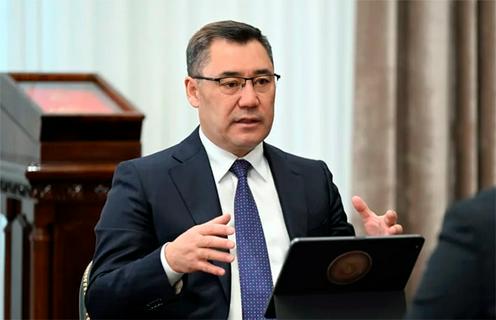The death penalty should be reinstated because prisons no longer deter criminals, as conditions in detention facilities have become too lenient, Kyrgyz President Sadyr Zhaparov said in an interview with Kabar news agency.
Prisoners, he noted, live under a regulated schedule, receive free meals and clothing, have opportunities to work inside the institutions, and even send money home to their families.
“In the past, inmates depended on help from relatives—food, clothing, money—to survive. Now serving a sentence is not enough for them; they also collect so-called ‘thieves’ tribute’ to sustain the criminal subculture,” Zhaparov said.
According to the president, reinstating the death penalty could deter criminals or at least significantly reduce the number of crimes.
Zhaparov said the measure has become necessary due to the rise in violent crimes, including murders and rapes, which, in his words, “shock society and provoke outrage.” He cited crime statistics for the past five years:
▪️ Under Article 122 (“Murder”) of Kyrgyzstan’s Criminal Code, 39 cases were registered in 2021, including two involving children under 14, one involving a teenager aged 14–18, and 36 involving women. There were 43 cases in 2022, 25 in 2023, 43 again in 2024, and 28 in the first eight months of 2025.
▪️ Under Article 154 (“Rape”), cases increased from 80 in 2021 to 175 in 2023, followed by a decrease to 107 in 2024 and 81 in the first eight months of 2025.
The president expressed particular concern over crimes against children: in 2025 alone, 20 cases of rape of children under 14 and 42 involving minors under 18 have been recorded.
When asked about the risk of wrongful executions—especially given low public trust in courts and law enforcement—Zhaparov said technical and legal safeguards would be required to minimize such risks. He proposed that investigations rely on video evidence and that court hearings be broadcast live to ensure transparency.
“Furthermore, both sides could be represented in the judicial process. For example, the mother of a recent rapist publicly stated online: ‘I agree with the death penalty for my son.’ So if relatives take part in the trial and see everything with their own eyes, they will believe,” Zhaparov said.
The president emphasized that the proposed death penalty would apply only to cases of murder and rape of minors, and he categorically ruled out its use in corruption cases. He explained that mixing the two could lead to injustice, as corrupt officials or law enforcement officers might exploit such charges to harm others. In contrast, Zhaparov argued, fabricating evidence in murder and rape cases is far more difficult.
As for the legality of the proposal, Zhaparov noted that Kyrgyzstan’s Constitution bans the death penalty and guarantees everyone the inalienable right to life (Article 25).
The measure could only be introduced through a national referendum. A draft law amending Article 25 will first be put up for public discussion, then undergo constitutional review, and may ultimately be approved by popular vote.
“If the majority supports it, the new Jogorku Kenesh (parliament) will pass laws to withdraw from relevant international treaties and amend current codes and legislation,” Zhaparov concluded.
The proposal to reinstate the death penalty follows the murder of 17-year-old Aisuluu Mukasheva in late September 2025, which caused widespread public outrage in Kyrgyzstan. The president has taken the investigation under his personal control and instructed the presidential legal department to draft amendments that would sharply increase criminal penalties for crimes against women and minors.










